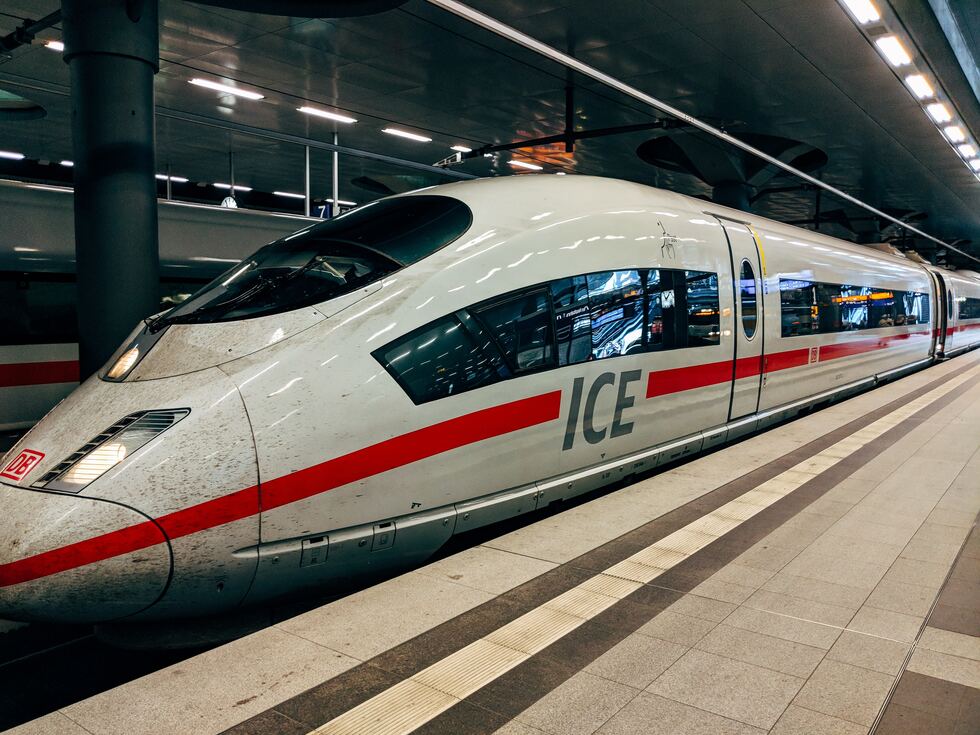
Introduction: Our Boundless Potential
Every day brings another chance for us to redefine our world, to reimagine how we live, interact, and become guardians of this unique planet. Embracing the concept of a world without money is not merely a utopian dream but an urgent call for societal evolution towards a world characterized by peace, equality, and environmental harmony.
Money: A Hindering Conventional Paradigm
Money, originally intended to simplify trade and barter, has been shaped and molded differently based on the prevailing economic system. Its significance and impact vary considerably between capitalist and socialist frameworks.
In a capitalist system, money is often seen as both the means and the end. Capitalism thrives on the concept of free markets, where individuals and entities are encouraged to pursue their own financial interests. Within this system, the accumulation of wealth is not just a means to an end but often the ultimate goal. Economic success and power are intrinsically linked, fostering an environment that equates wealth with worth. This perception encourages competition and innovation, driving individuals and companies to constantly strive for greater financial gains. However, it also exacerbates inequalities, as the benefits of wealth accumulation are not uniformly distributed. As such, a capitalist society, if left unchecked, can lead to significant disparities in wealth, power, and opportunities.
On the other hand, socialism places a different emphasis on money. In its purest form, socialism seeks to redistribute wealth to ensure that everyone has access to basic necessities. Money, in a socialist system, is seen more as a means to ensure equitable access to resources rather than a tool for individual enrichment. While it still plays a crucial role in facilitating transactions and trade, its significance is tempered by the collective goal of societal welfare. However, socialism also faces criticisms, with detractors arguing that by minimizing the incentive for individual financial success, it may hinder innovation and efficiency.
Integrating these perspectives into our earlier discussion, it’s evident that the current global dominance of capitalism has propelled money to a pedestal, magnifying its societal impact. While it’s driven innovation and economic growth, it’s also deepened divides, with greed often overshadowing ethical considerations. Systems built predominantly on capitalistic structures prioritize the affluent, inadvertently marginalizing those with fewer means.
Yet, in societies with socialist undertones, while money’s importance might be downplayed in favor of collective well-being, challenges arise in balancing individual aspirations with societal goals. The pursuit of equity can sometimes lead to inefficiencies and, in some cases, stifle personal freedoms.
To surmount these challenges, a reevaluation of our relationship with money across both systems is essential. Envisioning a future that melds the strengths of both capitalism and socialism, while minimizing their pitfalls, could pave the way for a more equitable and harmonious society.
Futuristic Vision: A Post-Capitalist and Post-Socialist Value System
The audacious notion of transcending our current economic paradigms beckons the inception of a diverse value system, encompassing the strengths and rectifying the weaknesses of both capitalism and socialism. Capitalism, celebrated for its ingenuity and competitive drive, has an underbelly marked by stark inequalities and an often-blind pursuit of profit. Its mechanisms sometimes overshadow humanity’s broader needs, placing material gain above societal well-being. Conversely, socialism, although rooted in collective benefit, has historically grappled with inefficiencies. At times, it curtailed individual aspirations and innovation under the guise of shared prosperity, inadvertently hindering the progress it sought to promote.
In this future, we must envision a society where resource allocation pivots around humanity’s collective needs and aspirations, rather than individual economic prowess or stringent state controls. This world, released from the weight of financial power dynamics, would also challenge the deep-rooted notion of national borders and insular nationalistic fervor. The divisive lines, both real and imagined, which have been the root of numerous conflicts, would give way to a global collectiveness.
Drawing parallels, the inception of the Internet once mirrored this boundless and inclusive vision. Conceived as an egalitarian space, it promised a world free from terrestrial biases of race, nationality, or economic status. However, the unchecked expansion of capitalist principles into this realm transformed parts of it into a monetized commodity, accessible in its fullest only to those privileged. Moreover, burgeoning digital nationalism, marked by censorship and information control, mirrors the very terrestrial biases the Internet once sought to overcome.
Thus, as we craft this new societal blueprint, our challenges stretch beyond merely reshaping our tangible existences. We must rejuvenate the Internet’s original promise, ensuring it remains a bastion of free expression, collaboration, and unbiased access. In harmonizing both our physical and digital realms, we sow the seeds for a cohesive global society — one where mutual respect, profound understanding, and shared objectives are the bedrock of our interactions.
Addressing Global Challenges: The Freedom from Monetary Constraints
In a world unburdened by the constant tug of fiscal considerations, our perspectives and priorities undergo a seismic shift. No longer restrained by budgetary constraints or driven by profit motives, our endeavors pivot from self-centered gain to collective well-being. Such a transition heralds the dawn of a new era, one where humanity collaborates, not competes, in addressing the multifaceted challenges that face us.
Battling the looming specter of climate change becomes not just an ethical imperative but a shared mission. We would see an unprecedented mobilization of resources and expertise, uniting nations, scientists, and civilians alike. With the eradication of financial barriers, the brightest minds would be free to develop and deploy innovative solutions, unburdened by commercial viability or the need for return on investment.
Similarly, the prevention of diseases would evolve from being a profitable industry to a global cause. Imagine vast interdisciplinary teams collaborating on cures, treatments, and preventive measures without the looming shadow of patents or the weight of pharmaceutical monopolies. Medical breakthroughs, instead of being guarded for profit, would be disseminated freely, ensuring that no individual is denied treatment due to financial constraints.
The vision extends to rectifying the scars we’ve inflicted upon our environment. Restoration projects, from reforestation to ocean cleanup missions, would no longer be stymied by funding shortfalls. Our approach to housing, too, would undergo a metamorphosis. Instead of viewing it as a commodity, shelter would be recognized as a fundamental human right. Urban planning and architecture would be driven by sustainability, inclusivity, and community well-being, ensuring every individual has access to safe and adequate housing.
Furthermore, as we rid ourselves of monetary constraints, the horizon of human curiosity and exploration expands exponentially. Research and development would surge forward, unfettered by budgetary restrictions. Our quest for knowledge would prioritize the betterment of humanity and the understanding of our universe. Space exploration, currently an expensive endeavor, might become a collaborative human project, with nations pooling resources and expertise to explore the cosmos, seek sustainable habitats, and perhaps even connect with other civilizations.
In this envisioned post-capitalist and post-socialist society, the very fabric of human interaction is rewoven. The essence of such a world is cooperation over competition, shared goals over isolated ambitions, and collective well-being over individual prosperity. As we transition towards this vision, we inch closer to actualizing the full potential of humanity, bound together in our shared aspirations and dreams.
Reweaving the Social Fabric: Equity and Unity
In a world devoid of monetary transactions, the very foundations upon which our societies are built begin to shift. The erasure of money would act as a catalyst, breaking down entrenched hierarchies and dismantling systems that perpetuate inequality. Without financial disparities to cloud judgment, merit and potential become the primary criteria for opportunity, breaking the chains of inherited privilege.
Education, one of the most potent tools for societal upliftment, would no longer be a luxury or a pathway only for the privileged. It would transform into a universally accessible right, with individuals pursuing knowledge and skills not for economic returns, but for personal growth, passion, and the betterment of society. Health, too, would be approached holistically. The emphasis would move from treatment-based models, often driven by profit, to preventive and wellness-centric approaches accessible to all.
In this new paradigm, the societal fabric is rewoven around the principles of equity and unity. Communities would flourish based on shared values, collective endeavors, and mutual respect. Cultural, racial, and societal differences, instead of being points of division, would be celebrated as enriching diversities. Every person, irrespective of their background, would be accorded the respect, dignity, and opportunities they deserve, making societies more inclusive, vibrant, and resilient.
The vision of a world unfettered by monetary constraints paints a picture of hope, unity, and boundless potential. It beckons a future where the core values of humanity take center stage, overshadowing divisive constructs and materialistic pursuits. As we inch away from the limitations imposed by money, we tread closer to a society where kindness, compassion, and cooperation aren’t just ideals but the bedrock of our interactions.
Indeed, the journey towards such a transformative world is laden with challenges. Skepticism, resistance to change, and the immense task of restructuring societal systems might seem daunting. Yet, the essence of human spirit has always been its resilience and ability to adapt. With concerted effort, unwavering commitment, and a shared vision, the dream of a world without money becomes not just a possibility, but a tangible future in the making.
The goal isn’t the creation of a utopia devoid of challenges, but the forging of a world characterized by empathy, abundance, and collective well-being. In this reimagined society, every individual’s potential is unlocked, every life is cherished, and our planet, our only home, is nurtured with unprecedented care and gratitude. As we stand at the crossroads of history, let us dare to dream, to envision, and to embark on this transformative journey. For, in the seeds of thought lie the blossoms of tomorrow’s reality.
Epilogue: The Power of Vision
In charting the course of human history, visions have played an indispensable role. They represent not just the hopes and aspirations of a few, but the collective yearnings of an entire generation. While the vision of a world without money may appear radical, perhaps even far-fetched to some, it’s essential to recognize the transformative power such visions hold.
These are not mere daydreams or idealistic fantasies; they are the north stars that guide societies through epochs, leading them out of the darkness of stagnation and into the dawn of progress. Whether or not we see this specific vision come to fruition within our lifetimes, it sets into motion a series of thoughts, conversations, and potentially, actions that edge us closer to its realization.
In sharing this vision, we’re not just positing a hypothetical scenario; we’re laying down a challenge. A challenge to think beyond the confines of the present, to dare to imagine a different future, and to work together to bridge the chasm between our current reality and the world we envision.
Remember, every monumental change in history, every revolution, every significant advancement began as a vision in the minds of the audacious. Let this vision be the spark that ignites the flame of change, reminding us always of the boundless possibilities that lie ahead when we dare to dream.
Header Photo by Randy Tarampi on Unsplash







